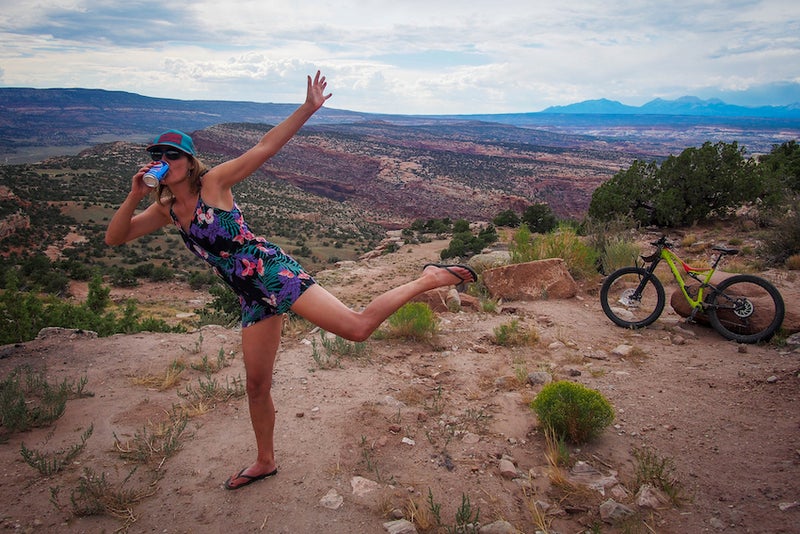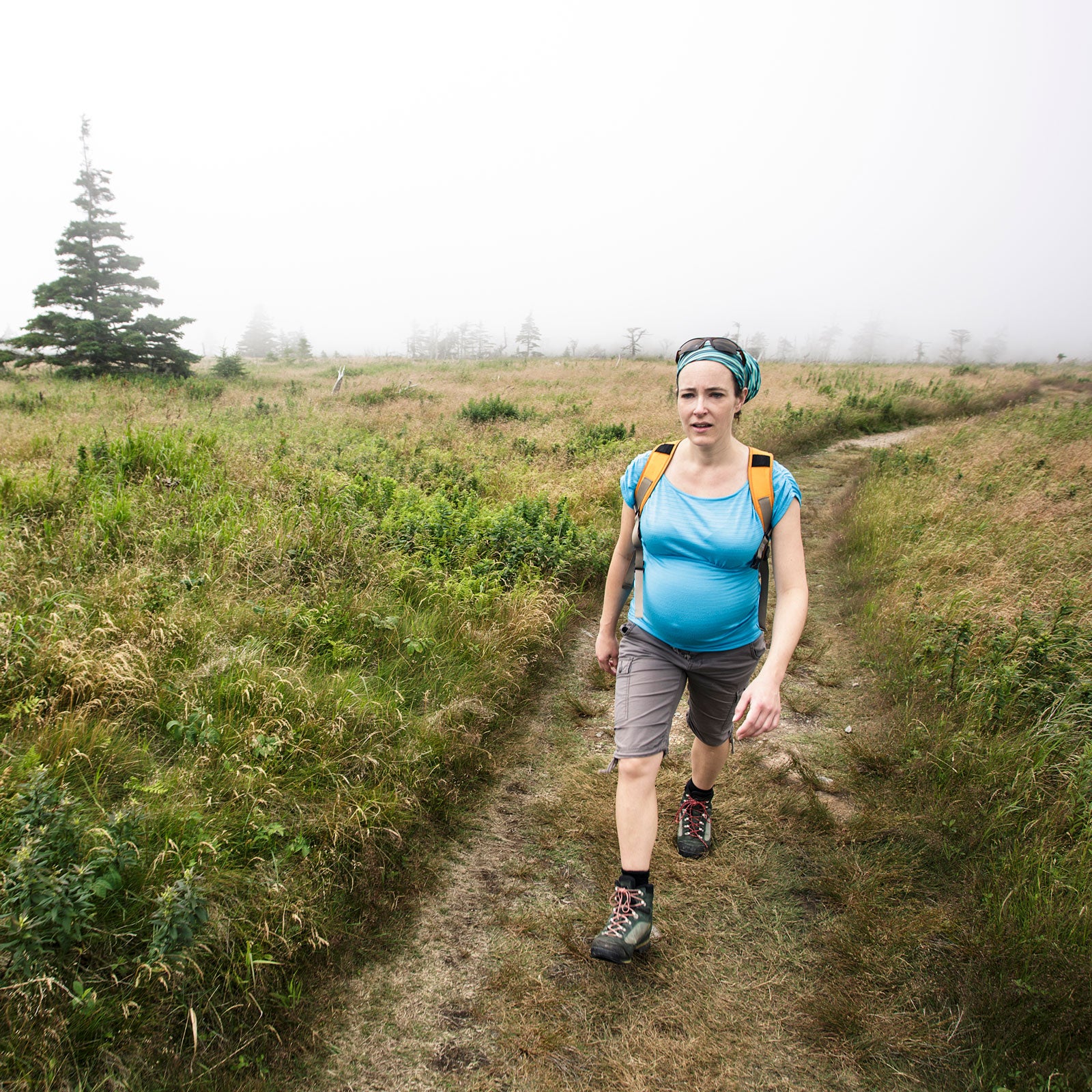It was in the exhausted, kick-back-and-drink-a-beer evenings when I noticed something was off. My friends and I were mountain biking from Durango, Colorado, to Moab, Utah, via a series of backcountry huts. After a grueling day of high-altitude gear grinding, the cold beers waiting in the huts should have been calling my name. But when we rolled up each evening, I went straight for the Pepsi. I’m usually not a big soda drinker, but suddenly I couldn’t get enough of those syrupy sugar bombs.
I also felt exceptionally tired and occasionally burst into tears at the top of a climb. Still, I didn’t think anything of it until a few weeks later when I didn’t get my period. And my boobs hurt.
My husband and I wanted kids someday, but we weren’t trying to get pregnant. I was more stoked about planning another bike trip (and then a skiing trip and after that a kayaking trip… ) than about decorating a nursery or shopping for baby clothes. I thought being pregnant meant giving up on adventuring, at least for a while. But the fact that I’d biked 250 miles and 30,000 feet of elevation gain in my first trimester gave me hope that I was wrong. Maybe outdoor pursuits and pregnancy weren’t mutually exclusive.
About a month after the hut trip, during a sleepless night when I sat by the woodstove cramming my face with peanut-butter toast, I Googled “mountain biking while pregnant.” There were a few blog posts from women who had safely biked through the second trimester (and even some enterprising souls who’d retrofitted their bikes to make third-trimester biking possible), but two of the most popular pregnancy websites in the U.S.— and —were unequivocal: biking while pregnant is unsafe. While some exercise is healthy, “there are limitations that a wise mother-to-be would place upon herself,” writes BabyMed. Those include “high-risk activities such as climbing mountains or mountain bike riding.” The article suggests a stationary bike instead.
The rationale is that a bad fall could lead to a condition called placental abruption, which could harm the baby or lead to early labor. I do not in any way mean to diminish the seriousness of this risk. But as with many pregnancy recommendations, the advice smacks of what Slate writer Ruth Graham the “swath-yourself-in-bubble-wrap thinking that has turned modern pregnancy into a nine-month slog of joyless paranoia.”

So I wondered: If you’re a competent biker, climber, kayaker, or whatever else-er and want to chase some endorphins that won’t send you flying over the handlebars or hurtling into a cliff, do you really need to stop for nine months?
Some ob-gyns clearly think so. But Betsy Vanderburgh, an avid cyclist and ob-gyn at Women’s Health Services of Central Virginia with nearly 30 years of experience, says the decision should be up to each individual and her provider. If your pregnancy is healthy and you’re in good physical shape, there’s no reason to quit most outdoor sports. (Activities with an especially high risk of impact, such as downhill skiing and downhill mountain biking, are the exceptions.) Plus, the mental-health benefits of being outside and doing what you love may contribute to a healthy pregnancy.
As long as you stay hydrated, there’s no harm in getting your heart rate up, getting hot and sweaty, or working your muscles hard. The risk, Vanderburgh agrees, is in falling—but “no doctor in the world is going to be able to predict at what level of exercise you’re not going to fall.” So while some doctors believe that biking exposes a pregnant woman to an unacceptable degree of risk, Vanderburgh’s view is that if you stay within your skill set, you’re just as likely to get in an accident driving your car to the trailhead.
The mental-health benefits of being outside and doing what you love may contribute to a healthy pregnancy.
Vanderburgh isn’t the only ob-gyn who supports preggo adventure athletes. Over the course of two pregnancies, kayaking pro saw ten different ob-gyns because of her travel schedule—and says eight of the ten were supportive of her decision to keep kayaking. In fact, Jackson-Troutman at nine months pregnant.
After seeing Jackson-Troutman cartwheel her kayak in a wave, some online commenters remarked that she should have her children taken away, or that she cared more about sports than her babies’ health. She sees it differently. Kayaking is “a form of meditation,” she says. “It’s really hard to think about other things when you’re going down a river.” That focus offered Jackson-Troutman a mental break from the stress and uncertainty of being pregnant and helped her cope with the physical challenges. “I gained more than 60 pounds with both of my kids, and that was brutal,” she says. “But when I put my gear on and got out there, I didn’t feel like a 200-pound person anymore. I felt much more like myself. More alive. I could even breathe better.”
Pregnancy probably isn’t the period to try rolling a kayak for the first time or start mountain biking. But with my midwife’s approval, I biked, hiked, and nordic-skied through much of my pregnancy. I stuck to relatively gentle terrain and avoided any sections I wasn’t confident I could complete. When I finally got so big that I had to quit, it felt like a little part of me was gone. But not much later, a new little part of me was born. And a few months after that, I was back on my bike again.


